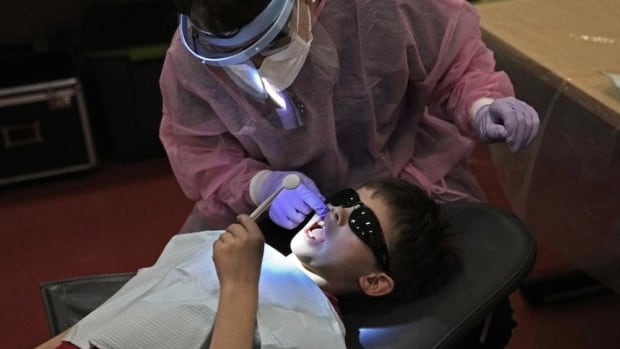Six health-care worker placement agencies are no longer eligible for Quebec public contracts for the next five years, Radio-Canada is reporting.
According to information from the Autorité des marchés publics (AMP) obtained by Radio-Canada, the agencies are now registered with the Registre des entreprises non admissibles aux contrats publics (RENA) because they do not meet integrity requirements.
The AMP oversees public contracts in Quebec. More than 2,400 companies are currently banned from contracting with the government.
Several major agencies that provided hundreds of nurses and orderlies to hospitals and CHSLDs in Quebec are among the list of ineligible companies.
After the AMP conducted audits, it found that three companies — 24/7 Expertise en Soins de Santé Inc., 9272-4095 Québec Inc. and 9159-2634 Québec Inc., doing business under the name Confort Élite — had, through their respective managers, participated in a scheme to submit strategically defined prices with the aim of encouraging an award and award of contracts favourable to them.
Three companies that submitted bids, namely 9423-8714 Québec Inc., Siloé Inc. and AGREPPRO Inc. (a recruitment and placement agency for professionals), were subject to another integrity audit and were registered with RENA.
Calls to eliminate private placement agencies from health network
A contract awarded in June 2023 by the Centre d’acquisitions gouvernementales (CAG) for independent nursing and assistance workers raised a flag for auditors.
The six-month contract included three, six-month renewal options through 2025. Its total value was $700 million.
Following the AMP decision, the six suppliers have 60 days in principle to cease execution of their current contracts in the public network.
The management of 24/7 Expertise plans to challenge the AMP decision.
“In the last few hours, the AMP informed us of its intention to register our company with RENA,” company managers said by email to Radio-Canada.
Réjean Leclerc, president of the Fédération de la santé et des services sociaux (FSSS-CSN), said the private sector’s lack of integrity in the public health and social services network is well known and documented.
“We must quickly eliminate all private agencies from the public network, recover the colossal sums which finance their profits in order to reinvest in our public establishments to attract and retain staff,” he added.
In January, another $1-billion call for tenders aimed at recruiting nurses, orderlies and other healthcare personnel from private agencies was temporarily suspended by the AMP.
The Health Ministry wants to gradually eliminate the use of private worker placement agencies by the fall of 2026.
During the study of budget appropriations for health on Tuesday, Health Minister Christian Dubé reported that maximum rates have been in effect since this week.
“No need to tell you that there are people who are not happy,” Dubé said.
“Private agencies challenged us in the call for tenders, did everything to delay the process, a legal process which was very complex,” he said, answering Québec Solidaire health critic Vincent Marissal.
In the meantime, contracts are awarded to meet the needs.
In January, La Presse published an investigation on collusion between private agencies.






